
What can we learn from reflecting on these caretaker guides for those caring for family members or patients with dementia?
Why do dementia patients often lash out aggressively? How can we figure out what is causing their frustration, so we can remove the cause?
How can we step into their world, rather than try to bring them back into a reality they are no longer capable of understanding?
How can dementia patients not know they are hurting us, the caregiver, while still knowing how to push our buttons? How can we deal with this?
Should we feel guilty as caretakers when we respond angrily to our family member who has dementia?
Regarding our thumbnail, we learned recently from his family that Bruce Willis is suffering from dementia, which means he cannot battle terrorists in skyscrapers anymore.
YouTube Script with Book Links:
https://www.slideshare.net/BruceStrom1/learning-to-speak-alzheimers-and-dementia-caretakers-guide
YouTube video for this blog: https://youtu.be/9vPK05gs8BQ
MY PERSONAL STORY REGARDING ALZHEIMER’S AND DEMENTIA
What is my experience caring for Alzheimer’s patients? Do I have any relatives who I have cared for who suffered from dementia?
My mother passed away from Lou Gehrig’s disease, or ALS, and I helped care for her, assisted by home health aides while I was working. This is also a neurological disease with some similarities to dementia, except that the part of the brain that is affected controls motor skills rather than cognition. ALS patients typically first stumble, then they lose the ability to walk, then they lose use of their arms, and then they have trouble breathing. But they rarely lose their mind and rarely suffer from pain. But I did have to face some of the caretaker issues that families with dementia patients face.
How did I first become aware of dementia? When I intervened as a condominium officer to stop the foreclosure of a destitute owner so he could be appointed a guardian by the court. The guardian placed him in a compassionate lock-down facility for Alzheimer’s patients, and then sold his unit and paid his debts. Many in the community were fed up with his demented behavior, his only family was an estranged sister. That is all I know, perhaps they were estranged for decades, but I just cannot help but wonder: Did his demented behavior also drive her away?
We also learn that Charlton Heston suffered from dementia.
How I Halted a Foreclosure on a Destitute Owner with Advanced Dementia! We Discuss Dementia
https://seekingvirtueandwisdom.com/how-i-halted-foreclosure-on-owner-with-advanced-dementia-reflecting-on-dementia/
https://youtu.be/_uAJPCCRNQ8
DISCUSSING THE SOURCES
On my channel we review interesting books, and one of the most interesting books on dementia is by the widow of the famed country music singer Glen Campbell. Kim was his fourth wife, and after he resolved his drug and loneliness problems, they enjoyed about a decade of a truly happy marriage and home life. But then his behavior evolved as he fell victim to Alzheimer’s, but he continued his concert tours until his dementia worsened, making touring impossible. When we reflect on his life before and after Alzheimer’s, we also review the Ten Early Signs and Symptoms of Alzheimer’s, again taken from the Alzheimer’s Association website.
This is a touching story, the last album Glen Campbell recorded included lyrics that explored how frustrating it was to live with Alzheimer’s. They asked the doctor: Should he embark on a last farewell tour? The doctor encouraged him to tour as long as he was able, keeping him active would slow down the progress of his dementia, and music often calms the dementia patient.
Glen Campbell Suffering from Alzheimer’s, Early Signs and Symptoms
https://seekingvirtueandwisdom.com/glen-campbell-suffering-from-alzheimers-early-signs-and-symptoms/
https://youtu.be/F9NmDiiPowI
Likewise, we reflected on the challenges faced by Rita Hayworth and Tony Bennett and their families as they slid into Alzheimer’s. Rita Hayworth was an early onset patient, she displayed symptoms in her fifties, and her daughter was one of the original board members and fundraisers for the Alzheimer’s Association. Tony Bennet often sang duets with Lady Gaga, and they performed a final concert when his dementia was fairly advanced.
Tony Bennett and Rita Hayworth: Their Struggle With Alzheimer’s
https://seekingvirtueandwisdom.com/tony-bennett-and-rita-hayworth-their-struggle-with-alzheimers/
https://youtu.be/4ujlV3a7Il8
Another interesting book we reviewed was Travelers to Unimaginable Lands, which has interesting case studies of both family caretakers and dementia patients. This is a wonderful book to read if you are a caretaker and feel really guilty if sometimes you lose patience with your family member suffering from dementia, but who still senses how to push your buttons and irritate you.
Also, we learn that Ronald Reagan, Margaret Thatcher, and Sean Connery, aka James Bond, who drank his martinis shaken, not stirred, all suffered from dementia in their later years.
Problems Family Caretakers Face When Caring for Loved Ones Suffering From Dementia
https://seekingvirtueandwisdom.com/problems-family-caretakers-face-when-caring-for-loved-ones-suffering-from-dementia/
https://youtu.be/VqR7y0Z8bYk
We reviewed both the book plus the footnotes, and one of the footnotes suggested that the main book we will be reviewing today, Learning to Speak Alzheimer’s. This book has many patient stories and many practical tips. We will only give you a sampling, we recommend you that buy the book. The copyright date is 2003, so some of the medical information is dated, but the advice is timeless and will always be helpful. The author’s husband had Alzheimer’s, she was able to take care of him until he passed away, and then she earned the certifications to continue working with Alzheimer’s patients for many years afterward, so she has both personal and clinical experience.
Alzheimer’s and dementia are not synonyms, only about three-quarters of dementia patients suffer from Alzheimer’s, but there are other types of dementia as well, and a few of these other types are curable, so you should always ask a specialist for a diagnosis, you cannot assume that someone with dementia has Alzheimer’s, which has no cure presently.
LEARNING ABOUT DEMENTIA
What are the odds of developing dementia? An average of seven percent over 65 will suffer from dementia eventually.
In the seventies, before the Alzheimer’s Association was incorporated, before many professionals knew how to deal with dementia, our author, Joanne Koenig Coste, faced a nightmare when her husband started showing signs of early-onset dementia when he was in his forties. Facing Alzheimer’s this young is rare, but there have been cases of early-onset dementia of patients in their thirties.[1]
Her husband had his own business, but he was losing the ability to manage his business and his time profitably. She remembers, “We were near financial ruin. Customers weren’t calling us back; new jobs weren’t coming our way. He had ever greater difficulty focusing and organizing his thoughts, sometimes rewriting advertising copy he had finished the day before. Once so gentle, docile, and fun to be around, he became frustrated and angry.” Frustration and anger are part of dementia, dementia patients often lash out at caretakers when they are frustrated,[2] our author discusses how to respond to this apparently aggressive behavior.
Her husband was not immediately diagnosed with dementia. She remembers, “the children chided their father about his absent-mindedness.” “The prescription for Valium to treat his supposed depression was refilled many times. Sometimes my husband unwittingly doubled the doses or forgot to take it at all.” In the first stages of dementia, when you can still function somewhat normally: What are some memory aids to remind you of this? Placing your daily prescriptions in old pill bottles in groups of seven, one for each day of the week, can help. Also, setting a cellphone alarm just before an appointment can be a useful reminder.
Just because you are a little bit forgetful doesn’t necessarily mean you are in the early stages of Alzheimer’s, as I have been somewhat forgetful all my life, and I have shared some memory aides I have used much of my life. I remember that as a teenager, I delayed shaving as long as possible, as it was something else to forget in the morning. Going to the store and forgetting to buy what I first wanted to buy is a common experience, as is driving past my intended destination. I have never been able to remember names, only numbers. But you should start worrying if you cross categories, like saying your dog is a fork, or if you misplace your keys in a really odd place like the freezer.
Then our author’s husband suffered a stroke, which accelerated his decline. She remembers, “At times he did not seem to recognize our children or me. Sometimes he appeared thoroughly perplexed about our home.” “And yet I also recall his having enough of his former self that when he looked at our young baby, tears would run down his face.” And then he started wandering about the neighborhood. She resisted the advice to institutionalize him, she figured out how to care for him at home.[3]
But if you are not able to care for your loved one at home, or if you have to work and cannot care for him at home, do not feel guilty about placing him in a facility. If you act out of love, your motives are what matters most. You are not Jesus, you are not Mother Theresa, you may have to go to work, and you need to consider the needs of other family members. In life, whenever someone criticizes you, or offers you advice, they always reveal more about themselves, their prejudices, their experiences, and sometimes their guilt, than they reveal about the situation at hand, and that applies to family members, friends, counselors, and doctors.
Do you love your neighbor? Do you love those whom you care for? If the answer is YES, you are fine. We all face difficult decisions in life, and whether to place a loved in in a facility is one of those decisions, but HOW you make the decision often is more important than WHAT decision you make.
Remember how the Good Samaritan in the parable helped the stranger beaten by robbers, with only the clothes on his back, and how the Good Samaritan lifted him onto his donkey and brought him to the inn where he was staying? But the next morning he had business to attend to, so he gave the innkeeper a denarius and asked him to take care of his new friend. Jesus is letting us know that sometimes we can pay the innkeeper to take care of our loved ones when we cannot take care of them ourselves.
DEVELOPING AN ATTITUDE OF HABILITATION
Our author, Koenig Coste, has developed a humanistic approach to caregiving that she calls Habilitation. She notes, “a habilitated person with dementia can live using his or her upper limits of function, intellect, emotion, and spirit,” so “both patients and caretakers can be successful,” so they are not weighed down.
These are the five tenets of habilitation:
- Make the Physical Environment Work. Simplify their life and eliminate distractions.
- Know that Communication Remains Possible. Even when words fail them, the patient can communicate in other ways.
- Focus Only on Remaining Skills. “Value what abilities remain. Help the patient compensate for any lost abilities without bringing them to his or her attention.”
- Live in the Patient’s World. “Never question, chastise, or try to reason with the patient. Join him in his current place or time, wherever that may be,” however illogical that world may seem, “and find joy with him there.”
- Enrich the patient’s life. “Create moments for success, eliminate possible moments of failure, and praise frequently and with sincerity. Attempt to find humor wherever possible.”[4]
Most importantly, have a specialist evaluate and test the patient. There are some types of dementia that have a cure, maybe your loved one suffers from a curable form of dementia. There are other conditions that mask themselves as dementia, and there are short-term conditions that can cause dementia as a by-product. In particular, cataracts can cause the brain to start shutting down by decreasing the amount of visual stimulation it receives and processes.
Other Conditions that can appear to be dementia:
- Alcohol abuse.
- Drug interactions.
- Emotional problems and/or depression.
- Endocrine imbalance.
- Metabolic disorder.
- Emotional or physical trauma.
Our author remembers how Carrie, a caretaker, knew for sure her mother Therese had Alzheimer’s, as she displayed all the symptoms. But her support group badgered her into having a specialist examine her mother. She remembers, “With the help of a CAT scan, the doctors discovered a small tumor growing in Therese’s brain. She received the appropriate treatment and slowly returned to her old self, free of dementia.”[5]
Can you remain at work in the early stages of Alzheimer’s? The celebrities we reflected on were able to perform, but celebrities also have an army of supporting personnel few of us can count on. Often people in normal jobs need to retire early. Or they can soldier on until they cannot. The longer they can work, the better for them.
Our author remembers that “Gary was a sixty-one-year-old high school math teacher who chose early retirement when his forgetfulness began to be an issue in class. Over the course of a year, although he had remained kind and caring, he had neglected to correct midterm exams, unknowingly missed a teacher’s meeting, continually forgot where he parked his car in the staff parking lot, and had growing difficulties with a curriculum he had used successfully for nineteen years.” “Some faculty members began to talk about how slovenly Gary had become.”
“At home a burnt teapot, a microwave explosion, and several small kitchen fires had forced him to exist on a diet of cold foods.” This is an issue in our condominium association, our advice is if someone has dementia, flip off the circuit breaker to disconnect the stove so the patient doesn’t burn the building down.
Should the patient continue driving? Our author has a checklist to help you make that decision, as well as descriptions of the progress of dementia, which we reflected in the biography of Glen Campbell as his dementia progressed. If the patient insists on driving when they should not, you can disconnect the battery. Most states can revoke the driver’s license of someone who is suffering from dementia. Also, our author lists various behavioral changes in the various stages of Alzheimer’s. She discusses the need to have a care plan, taking into account the patient’s physical, social, emotional, and spiritual needs.[6] She also discusses the six domains: the physical domain, the functional domain, the social domain, the communication domain, the sensory domain, and the emotional domain.[7]
The facilitator at a dementia support group had this quick checklist:
No CARTing
- No Correcting
- No Arguing
- No Rationalizing
- No Testing the patient’s memory.
SEEING THE WORLD FROM THE PATIENT’S PERSPECTIVE
We must resist the temptation to discuss the patient in front of us in the third person as though he cannot understand us, especially when he can. Some patients are aware of their condition in the early stages. When Glen Campbell was planning his final farewell tour, the question came up about what would happen if Glen said something embarrassing. Glen simply proclaimed, Just tell them I have Alzheimer’s, and then they will understand!
Our author warns us, “People with dementia resent being seen as deaf and dumb. Many of them will talk much less than they did before the diagnosis, and some will stop talking completely, fearful they will make mistakes.”
Family members and friends are often put off by the patient’s lack of interest in them, or sometimes by their rejection, or their totally bizarre behavior. We cannot blame them for their behavior, those with dementia are guided by their immediate emotions.
Our author reminds us, “When visiting someone else’s home, even a familiar one, the Alzheimer’s patient may hallucinate, seeing or hearing something imaginary. Or they may have delusions, they might say: ‘I hear people are talking about me!’ Or they may be paranoid, they might say: ‘You’re stealing all my money!’ Or, ‘Where did you hide my keys?’ Explaining will not help and may make the situation worse by increasing the patient’s anxiety.”
She has another helpful checklist, and reminds us, most of all, that support groups for both the early-stage patient and for the caregiver can be very beneficial.[8] You find these support groups on the Alzheimer’s Association website.
https://www.alz.org/help-support/i-have-alz/programs-support
Our author has an excellent example of how it can be tricky to see the world from the patient’s perspective. Once Judy and Paul were visiting in the lobby one late afternoon when Judy “walked directly across the room to where one of the visitors was seated and shoved him squarely on the forehead, yelling, ‘Stop it! Stop It!’”
What was happening? The sun was shining right in her eyes from the window behind this unlucky and totally baffled visitor. Solution? They closed the shades for the window and then everything was okay![9]
TENET #1: MAKE THE PHYSICAL ENVIRONMENT WORK
Our good author places this on the top of her list. Many dementia patients have problems with sundowning at dusk, so lighting that mimics daylight can be beneficial, especially if you turn up the lights when it starts getting dark outside.
She recommends choosing indoor and outdoor color schemes carefully, painting each room a unique color. She has specific recommendations on how to paint the bathroom in particular. Lightly colored and safe flooring is important, avoid shiny floors if possible.
Simplicity is the word when selecting furniture and wall hangings. And most importantly, AVOID MIRRORS. Sometimes sturdy fish tanks will give them many hours of joy, if they don’t knock it over. Blaring televisions may be too much stimulation for someone with dementia. Stairs are a problem. Our author discusses all these items in-depth, with many more suggestions.[10]
TENET #2: KNOW THAT COMMUNICATION REMAINS POSSIBLE
Our good author cautions us: “In the early stage of dementia, speech problems range from occasional word-finding difficulties to a profound loss of language. Then the ability to process and store information declines. Clinicians agree that in the middle stage that a ‘verbal casserole’ becomes common, with disconnected thoughts spoken aloud and invented words and sounds replacing real ones. In the final stage, speech all but disappears.” But we must try to include the patient in conversations whenever possible, this may delay their decline.
Our good author experienced this loss of language. She remembers: “My husband used the word smish for sandwich. After a while, smish meant food, and he would say smish whenever he was hungry.” You may need to simplify your speech so they can understand you. The time will come when you need to try to communicate with gestures: kind, patient, coaxing gestures.
Our good author has suggestions:
- “Approach the person in a calm, gentle manner, and always from the front, to foster trust.”
- “Set the stage with a speaking tone that reflects respect.”
- “Speak slowly, in a low tone, using simple sentences.” “The patient’s hearing is not the problem, so raising your voice is not the answer.”
- “Be patient: the person with progressive dementia takes extra time to process information.”[11]
TENET #3: FOCUSING ON REMAINING SKILLS
Every discussion on dementia patients discusses how difficult it can be to coax them to take a bath or shower. Kim Campbell had fewer problems since her husband liked to take showers with her. Long discussions on why they should take baths or showers will not do any good. Our author describes one case when a case worker had better luck when she kept the patient bundled and warm until they got into the shower, and if the clothes got wet, that is okay, it is far less difficult to dry the wraps than to coax a cold patient into the bath. She also suggests taking the mirror out of the bathroom as it spooks some patients.
Dressing can be another challenge. Our good author recommends that sometimes sweatpants are best as buttons, zippers, and snaps can be problematic. And many caretakers lay out the clothes for the patient if they can still dress themselves. Some patients want to undress at inappropriate times, so maybe a one-piece jumpsuit with a zipper in the back is the solution. If they want to wear the same thing over and over, maybe buy many identical outfits that they like.
Sometimes coaxing the patient to eat enough is challenging. You need to make sure they drink enough also. Make sure their dentures fit, and make sure they don’t have aching teeth. In the morning, put the toothpaste on their toothbrush.
Coaxing them to use the restroom can be a problem. Perhaps having a male patient urinate in the backyard will help if you have privacy. Perhaps put a commode by the bed, or make sure the path is lit towards the bathroom at night.
I remember once when my favorite youngest daughter was young, we went to the mall to ride all the escalators and elevators. She was so distracted she forgot she had to go to the bathroom, and she was embarrassed. Likewise, you may also need to occasionally remind your loved one to use the restroom, they may forget.
Sleeping is often a problem, often patients with progressive dementia only sleep six hours a night. Sometimes day and night become intertwined. Our author advises us that if sleep habits change, we “should assess whether these disturbances are linked to physical, medical, or emotional events rather than to the condition. The patient may be getting a cold or flu, may need to go to the bathroom, or may desire to open a window.” One patient slept better if she didn’t watch the news before she went to bed, the politicians and cacophony were causing her nightmares.
And our good author has many other suggestions and multiple helpful checklists, of course. So, you need to buy her book.[12]
TENET #4: LIVING IN THE PATIENT’S WORLD: BEHAVIORAL CHANGES
Our good author begins this chapter with a warning: “Never question, chastise, or try to reason with the patient. Join him in his current place or time, no matter when or where that may be, and find joy with him there.” If he thinks he is talking to you for the very first time, always say it is so pleasant to meet him.
Our good author has good advice: “When a patient’s behavior seems to be changing, check out his basic physical comfort. Is he thirsty? Is he hungry? Does he have to go to the bathroom? Is he too hot or cold? Is he overmedicated? Do hearing aids or eyeglasses need to be checked? Does he need to talk to someone about what is happening to him?”
“If he is out of sorts, cranky, agitated, or aggressive,” start checking. Is he constipated? Does he have “arthritic pain, a sore throat, earache, headache, or bellyache?” Is he catching a cold? Is he feeling well?
Often patients with dementia display aggressive behavior, which can be challenging. Our author has a case study where Carolyn, a patient home-health aide, was able to keep her cool and handle some apparently aggressive behavior. Not wanting to disturb the patient who was absorbed in watching the birds in the window, the aide walked behind Jeanne and put her lunch on the table. Jeanne became angry and threw the soup in the aide’s face!
“Get out of my house,” Jeanne screamed. “Get out now! Right now, or I’ll call the police!” The author explains that this is what is known by clinicians as a “catastrophic reaction.”
The author continues, “Carolyn did leave. She sat in her car for a few moments, wiped off her soup-spattered face, removed her sweater, and returned, this time to the back door. She knocked gently and, when Jeanne answered, Carolyn took a deep breath, smiled, and said, ‘Hello, I’m Carolyn. I’ve come to do some chores for you. Where do I begin?”
“Come on in,” Jeanne said. “Would you like to have a cup of tea with me?” The author explains that this might not have happened had she approached her from the front rather than the rear, but in reality, you may never know what would set Jeanne off. The author explains that this might not have happened had she approached her from the front rather than the rear, but in reality, you may never know what would set Jeanne off.
The author recommends keeping a behavior log, noting the activity, mood, and times of day, and any distractions present, noting odors, sights, and sounds. Some patients have problems with sundowning, showing challenging behavior at dusk. She suggests that filling this time with some pleasurable activity may help.
Our author discusses a long list of other typical behavioral changes, including delusions, diminished concentration, accusatory behavior, changes in judgment, getting lost in memories, not recognizing objects, lack of social appropriateness, frequent emotional changes, and finally, problems with holidays. She has suggestions on how not to overwhelm the dementia patient on holidays. There are other items on this long list.[13]
TENET #5: ENRICH THE PATIENT’S LIFE
Social life is so important for dementia patients, but it is challenging because their attention span is shorter and they are less patient and less able to understand their surroundings. This chapter is filled with ideas for activities the author has suggested. Try having old friends visit to talk about old times, maybe they can go on walks or sit in the yard.
A daily routine is so important, she has recommendations for life tasks and enjoyable activities for each time of the day. Physical activity really helps both their health and their emotions. As our author notes, “Exercising together can mean sharing a walk, a bike ride, a swim or a game of tennis. These times can also afford a chance to hold hands, reminisce, and find pleasure, and perhaps even joy.” And our author has another long list of suggested enriching activities.[14]
CONCLUDING CHAPTERS
Our good author, Koenig Coste, has an important chapter on Caring for the Care Partner. You need to take care of yourself. She observes that sometimes family can be less than helpful, and sometimes they are eager to give advice while being equally reluctant to assist in any way. Sometimes out of guilt they refuse to recognize the efforts of the caregiver. People don’t change just because a family member falls ill or succumbs to dementia. It is the job of Jesus to judge, let them be.
Our author does recommend that “family meetings should always be encouraged, whether or not the family members get along. In therapy sessions with me, families often discuss issues they’ve had with the patient that have been under the surface all their lives. The only thing that has changed is that one member of the family has dementia, but the family dynamics remain the same.” Sometimes old wounds can heal, and bad attitudes can change, but don’t count on it.[15]
Our author also has good advice in chapters on Receiving Home Care, and on Receiving Care Outside of the Family Home.
THE DEMENTIA CAREGIVER’S SURVIVAL GUIDE
We recommend the Dementia Caregiver’s Survival Guide because Learning to Speak Alzheimer’s was written twenty years ago, and although it covers much of the same material, it provides a different perspective.
This guide discusses the various therapies that are available. One major difference is that Cotes in the older book is adamantly opposed to Reality Orientation Therapy for dementia patients, in her experience she thinks it is harmful to try even to bring them back to reality. But the newer guide does state that if the patient is so deeply grounded in their false reality that they cannot be convinced otherwise, it is wise to leave them alone in their delusions. The Guide also discusses Reminiscence Therapy, Cognitive Stimulation Therapy, and Occupational Therapy.[16]
What treatments are available for dementia? The problem in trying to treat neurological disorders is that the body protects the brain by erecting a blood-brain barrier, which means it can be challenging to find drugs that will not be blocked and will reach the brain. Injecting the drugs into the bloodstream rather than swallowing medications may help somewhat. The drug that has recently been approved for Alzheimer’s is Aducanumab has problematic side effects, it “often causes swelling and bleeding in certain brain areas, causing other side effects” “like headaches, nausea, vision challenges, or confusion.” There are also other drugs with potentially awful side effects for dementia. Another problem with all of these drugs is they will never repair the damage already done by dementia; they can only delay further deterioration.[17] We already mentioned that there is a type of dementia that is curable.
The Guide has the same types of lists and the steps of disease progression. The Guide also discusses the various types of dementia; we will save this discussion for a later blog and video.
What lifestyle changes can we implement to prevent dementia? Mainly the big three, some say four, magical cures for most conditions: Diet, exercise, plenty of sleep, and an active social life. What is the most important factor for preventing dementia, and also for dementia patients? Some doctors say diet: dementia patients can be sensitive to certain types of food. One healthy diet to lower cholesterol and triglycerides, and some say high blood pressure, is the DASH diet. You should ask for input from your doctor and dietician before you decide on a diet, both for you and your dementia patient.
Eating for Health: DASH Diet, and St John Climacus on Gluttony and Fasting, Ladder of Divine Ascent, Step 14
https://seekingvirtueandwisdom.com/eating-for-health-dash-diet-st-john-climacus-on-gluttony-and-fasting-in-ladder-of-divine-ascent/
https://youtu.be/KM0eMjE1fXc
Other doctors say exercise is more important, light or moderate exercise for dementia patients, and more vigorous exercise for those who are healthy. Why would exercise be more important than diet? The brain is hungry for oxygen, it consumes about a quarter of the oxygen we breathe, and exercise feeds the brain with this precious, healing oxygen. Adequate sleep is also very important. As is social life.
EDUCATING THE POLICE ON DEMENTIA
We are also investigating whether the police are being trained on how to deal with the elderly who may be showing signs of dementia. This is challenging, anyone over seventy, or even sixty, who has anger issues, or is making sexually inappropriate comments or actions, or who has not been paying their bills, may be suffering from dementia. This might be true even if the person has a history of these issues, as dementia often worsens our undesirable personality traits. And there may not be any clear indications of dementia if our dealings with them are cursory.
Many police departments, particularly in my state, Florida, have CIT police training programs through NAMI which cover mental illness,[18] but currently these only cover autism, drug abuse issues, and mental issues with younger offenders. But we do know that there are discussions between the Alzheimer’s Association, NAMI, and the police departments locally to address this training issue, and perhaps nationally as well.
This video and blog reviews several Atlantic articles discussing the police CIT training and awareness on mental illness, particularly in Miami, FL and in Texas, and how the Miami-Dade courts have addressed mental illness.
Wellness Checks for Dementia: Police and Mental Illness
https://seekingvirtueandwisdom.com/wellness-checks-for-dementia-police-and-mental-illness/
https://youtu.be/z_SlPLARCxU
We are also planning a video on Oliver Sachs’ famous book on the Man Who Mistook His Wife for a Hat, and Other Clinical Tales. This book includes cases studies of patients with many neurological conditions, including dementia.
[1] https://www.alz.org/alzheimers-dementia/what-is-alzheimers/younger-early-onset
[2] https://www.alz.org/help-support/caregiving/stages-behaviors/agression-anger
[3] Joanne Koenig Coste, Learning to Speak Alzheimer’s (New York: Mariner Books, Houghton Mifflin Harcourt, 2003), Chapter 1, The Ticking Meter, pp. 2-6.
[4] Joanne Koenig Coste, Learning to Speak Alzheimer’s, Chapter 1, The Ticking Meter, pp. 7-8.
[5] Joanne Koenig Coste, Learning to Speak Alzheimer’s, Chapter 2, Seeking a Correct Diagnosis, pp. 14-15.
[6] Joanne Koenig Coste, Learning to Speak Alzheimer’s, Chapter 3, What To Expect, pp. 20-30.
[7] Joanne Koenig Coste, Learning to Speak Alzheimer’s, Chapter 4, Habilitation, The New Approach, pp. 42-47.
[8] Joanne Koenig Coste, Learning to Speak Alzheimer’s, Chapter 5, From the Patient’s Perspective, pp. 48-57.
[9] Joanne Koenig Coste, Learning to Speak Alzheimer’s, Chapter 4, Habilitation, The New Approach, p. 35.
[10] Joanne Koenig Coste, Learning to Speak Alzheimer’s, Chapter 6, Make the Physical Environment Work, pp. 61-76.
[11] Joanne Koenig Coste, Learning to Speak Alzheimer’s, Chapter 7, Know That Communication Remains Possible, pp. 77-82.
[12] Joanne Koenig Coste, Learning to Speak Alzheimer’s, Chapter 8, Focus on Remaining Skills, pp. 85-107.
[13] Joanne Koenig Coste, Learning to Speak Alzheimer’s, Chapter 9, Live in the Patient’s World, pp. 108-126.
[14] Joanne Koenig Coste, Learning to Speak Alzheimer’s, Chapter 9, Live in the Patient’s World, pp. 127-145.
[15] Joanne Koenig Coste, Learning to Speak Alzheimer’s, Chapter 10, Caring for the Care Partner, pp. 149-156.
[16] Janet Cruz, The Dementia Caregiver’s Survival Guide (Unlimited Concepts, 2023), pp. 78-83.
[17] Janet Cruz, The Dementia Caregiver’s Survival Guide, pp. 75-78.
[18] https://www.nami.org/Advocacy/Crisis-Intervention/Crisis-Intervention-Team-(CIT)-Programs

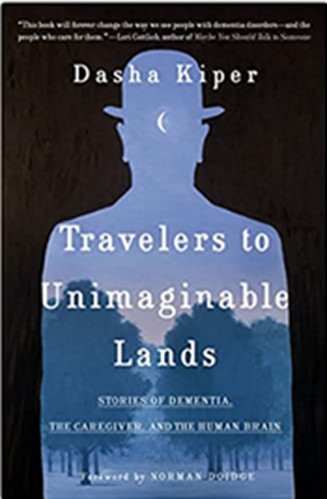
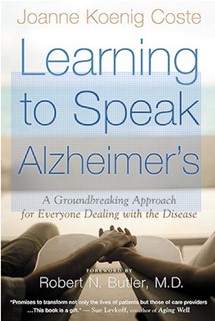
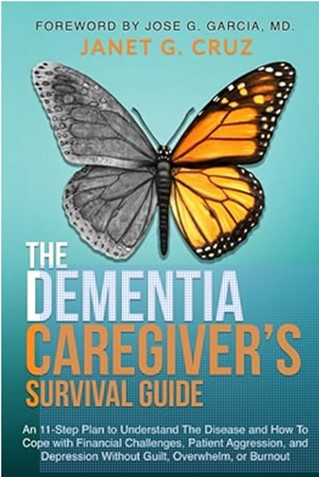

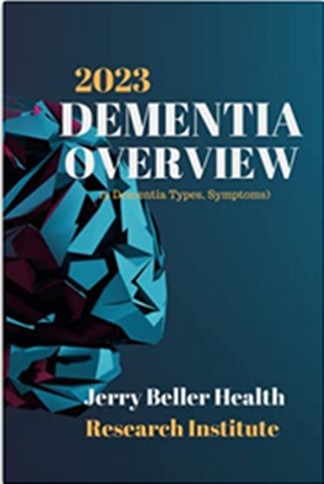


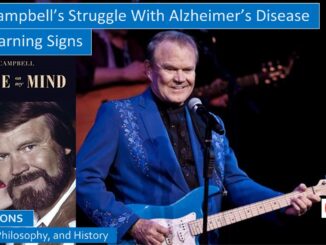

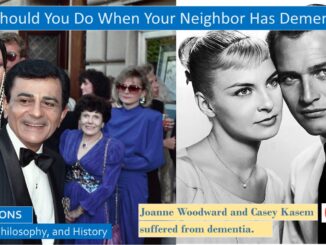
2 Trackbacks / Pingbacks